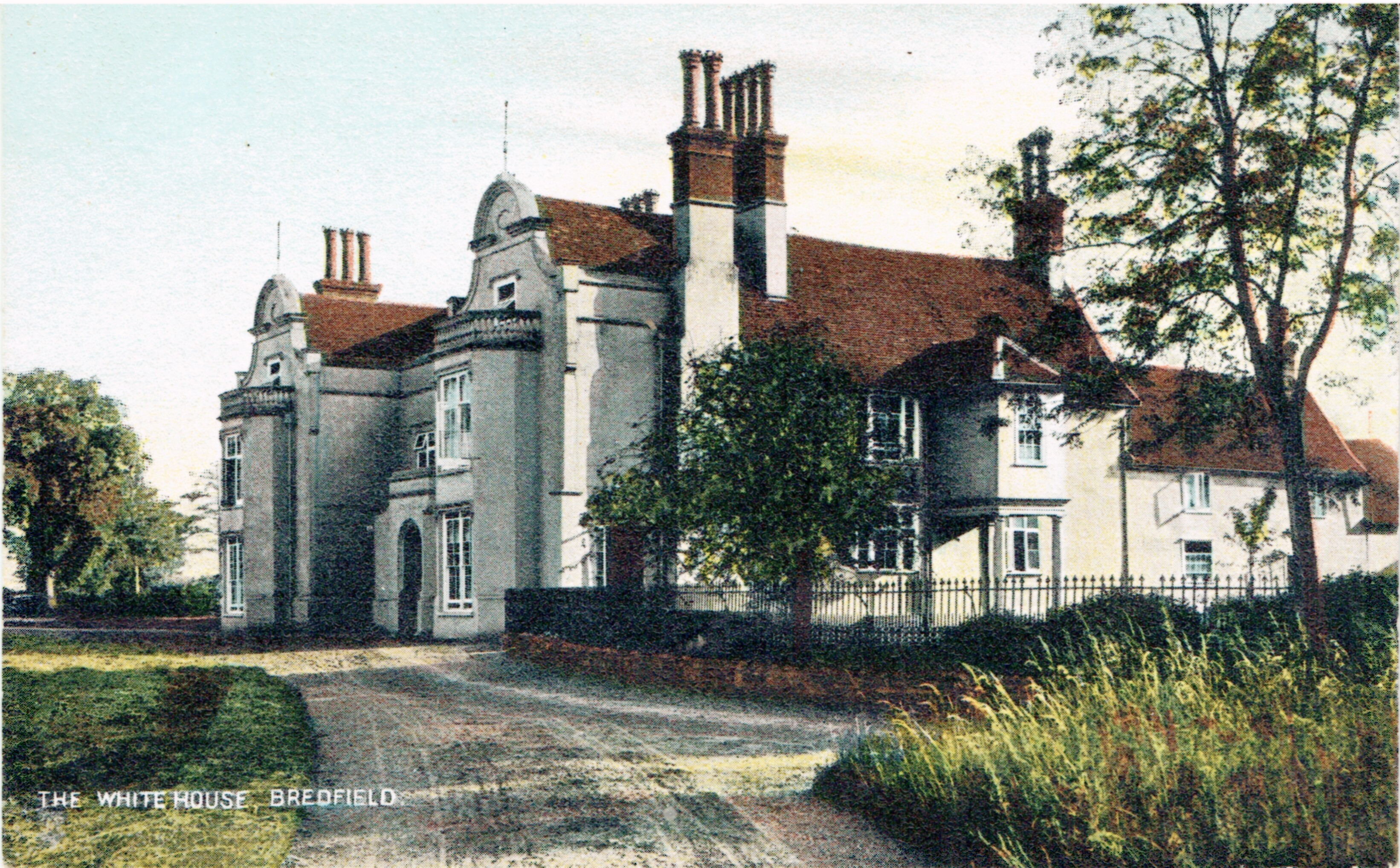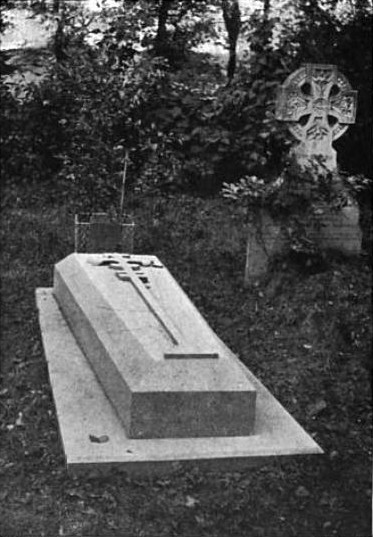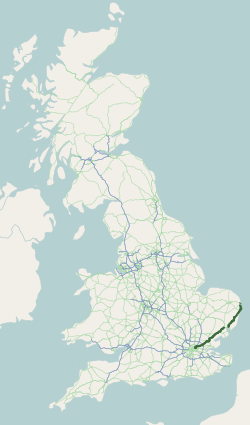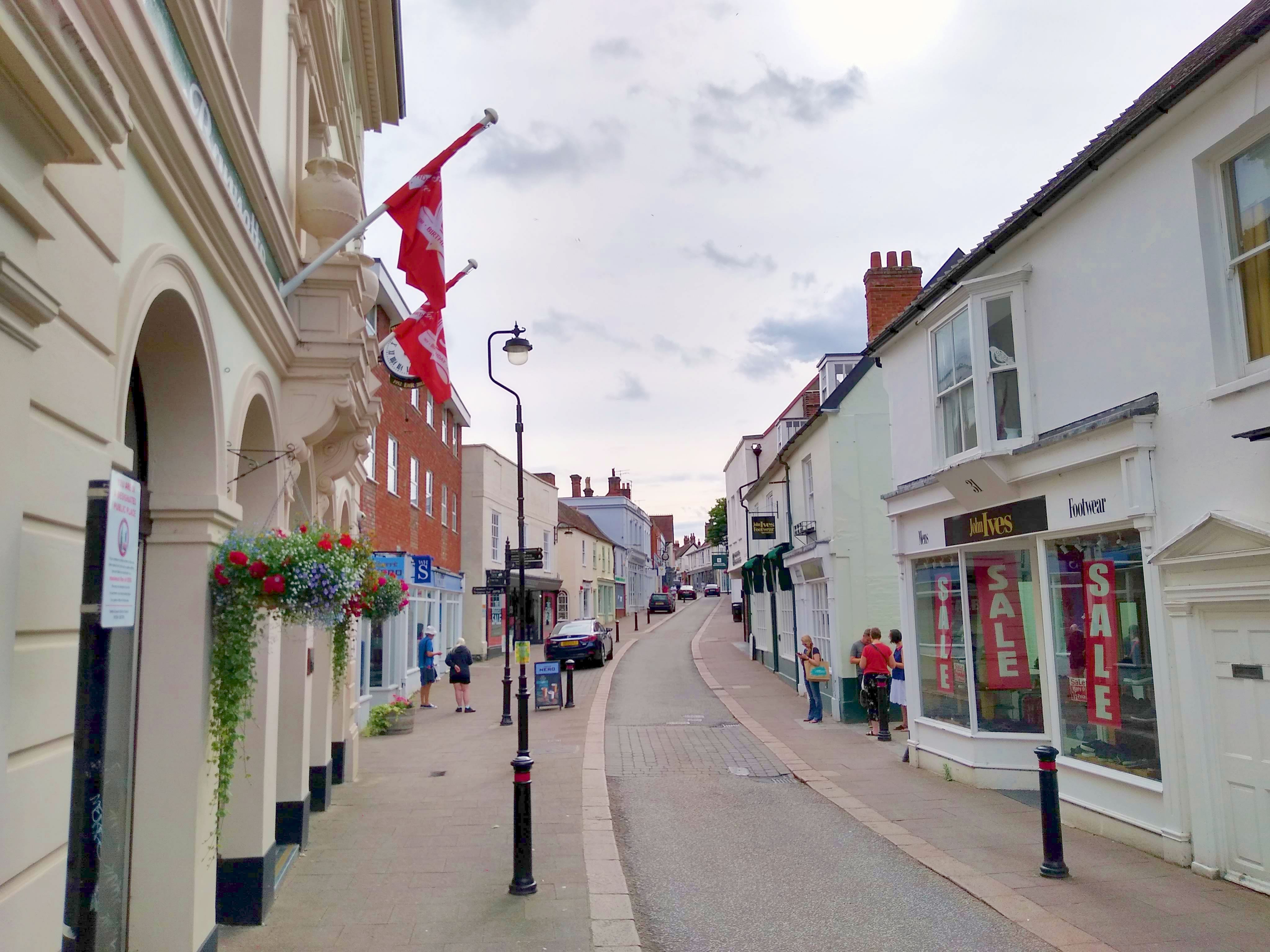|
Bredfield
Bredfield is a small village and civil parish in the English county of Suffolk. It is situated just off the A12, two miles north of Woodbridge. Another village, Dallinghoo, is to the north, and to the west is Boulge, a small hamlet. The population of Bredfield at the 2001 census was 308 (including 10 students living outside the village), the population increasing to 340 at the 2011 Census. The first mention of Bredfield is in Little Domesday in 1086, as Brēde Felda (or various permutations thereof) in Old English, meaning "broad clearing". The historic building Bredfield House, the birthplace of poet and writer Edward FitzGerald, used to be situated in the village; however, it was damaged during World War II and has since been demolished. There is a historic non-denominational chapel (built in 1902) and a historic parish church (St Andrew's, dating from the 13th century). The Castle Inn public house has stood in the village since at last 1808 and remains a centre of vill ... [...More Info...] [...Related Items...] OR: [Wikipedia] [Google] [Baidu] |
Bredfield House
Bredfield House (or White House as it was also known) was a now-demolished country house situated in the village of Bredfield, around 2 miles north of Woodbridge, Suffolk, England, United Kingdom. It was a Jacobean building and was traditionally the seat of the Jenney family. History In the 17th century Bredfield belonged to the Marryot family, who built the house. It passed to the Jenney family in 1683 by the marriage of Dorothy, daughter and co-heiress of Robert Marryott, to Edmund, the second son of Sir Robert Jenney. A later Edmund Jenney was High Sheriff of Suffolk for 1740. The house is best known as the birthplace Edward FitzGerald (1809–1883), who went on to translate the Rubàiyàt of Omar Khayyàm. Edward's father, John Fitzgerald, had rented it in 1801 from the Jenneys on his marriage to Edward's mother. Edward described it in his poem of 1839, ''Bredfield Hall'' which starts thus: :"Lo, an English mansion founded :In the elder James's reign, :Quaint ... [...More Info...] [...Related Items...] OR: [Wikipedia] [Google] [Baidu] |
Edward FitzGerald (poet)
Edward FitzGerald or Fitzgerald (31 March 180914 June 1883) was an English poet and writer. His most famous poem is the first and best-known English translation of '' The Rubaiyat of Omar Khayyam'', which has kept its reputation and popularity since the 1860s. Life Edward FitzGerald was born Edward Purcell at Bredfield House in Bredfield, some two miles north of Woodbridge, Suffolk, England, in 1809. In 1818, his father, John Purcell, assumed the name and arms of his wife's family, the FitzGeralds. His elder brother John used the surname Purcell-Fitzgerald from 1858. The change of family name occurred shortly after FitzGerald's mother inherited a second fortune. She had previously inherited over half a million pounds from an aunt, but in 1818, her father died and left her considerably more than that. The FitzGeralds were one of the wealthiest families in England. Edward FitzGerald later commented that all of his relatives were mad; further, that he was insane as well, but w ... [...More Info...] [...Related Items...] OR: [Wikipedia] [Google] [Baidu] |
Boulge
Boulge is a hamlet and civil parish in the East Suffolk district of Suffolk, England. It is about north of Woodbridge. The population remained only minimal at the 2011 Census and was included in the civil parish of Debach. The place-name is French and probably means 'bag-shaped piece of land', rather than the 'rough overgrown land' previously assumed. Boulge parish church is the burial place of the local poet and writer Edward Fitzgerald, whose most famous work was his translation of ''The Rubaiyat of Omar Khayyam''. The Church of St Michael and All Angels is Grade II listed as are, separately, the Fitzgerald family mausoleum and Edward Fitzgerald's grave. There is a possible Tournai font in the church. Boulge Hall Boulge Cottage in the surrounding park was built c.1800 for Mrs Eleanor Short. Known as the "Queen of Hell" on account of her furious temper, Mrs Short had inherited Boulge Hall in 1792 on the death of her second husband, William Whitby. She later married Henry ... [...More Info...] [...Related Items...] OR: [Wikipedia] [Google] [Baidu] |
Suffolk
Suffolk () is a ceremonial county of England in East Anglia. It borders Norfolk to the north, Cambridgeshire to the west and Essex to the south; the North Sea lies to the east. The county town is Ipswich; other important towns include Lowestoft, Bury St Edmunds, Newmarket, and Felixstowe which has one of the largest container ports in Europe. The county is low-lying but can be quite hilly, especially towards the west. It is also known for its extensive farming and has largely arable land with the wetlands of the Broads in the north. The Suffolk Coast & Heaths and Dedham Vale are both nationally designated Areas of Outstanding Natural Beauty. History Administration The Anglo-Saxon settlement of Suffolk, and East Anglia generally, occurred on a large scale, possibly following a period of depopulation by the previous inhabitants, the Romanised descendants of the Iceni. By the fifth century, they had established control of the region. The Anglo-Saxon inhabitant ... [...More Info...] [...Related Items...] OR: [Wikipedia] [Google] [Baidu] |
Civil Parish
In England, a civil parish is a type of Parish (administrative division), administrative parish used for Local government in England, local government. It is a territorial designation which is the lowest tier of local government below districts of England, districts and metropolitan and non-metropolitan counties of England, counties, or their combined form, the Unitary authorities of England, unitary authority. Civil parishes can trace their origin to the ancient system of Parish (Church of England), ecclesiastical parishes, which historically played a role in both secular and religious administration. Civil and religious parishes were formally differentiated in the 19th century and are now entirely separate. Civil parishes in their modern form came into being through the Local Government Act 1894, which established elected Parish councils in England, parish councils to take on the secular functions of the vestry, parish vestry. A civil parish can range in size from a sparsely ... [...More Info...] [...Related Items...] OR: [Wikipedia] [Google] [Baidu] |
England
England is a country that is part of the United Kingdom. It shares land borders with Wales to its west and Scotland to its north. The Irish Sea lies northwest and the Celtic Sea to the southwest. It is separated from continental Europe by the North Sea to the east and the English Channel to the south. The country covers five-eighths of the island of Great Britain, which lies in the North Atlantic, and includes over 100 smaller islands, such as the Isles of Scilly and the Isle of Wight. The area now called England was first inhabited by modern humans during the Upper Paleolithic period, but takes its name from the Angles, a Germanic tribe deriving its name from the Anglia peninsula, who settled during the 5th and 6th centuries. England became a unified state in the 10th century and has had a significant cultural and legal impact on the wider world since the Age of Discovery, which began during the 15th century. The English language, the Anglican Church, and Eng ... [...More Info...] [...Related Items...] OR: [Wikipedia] [Google] [Baidu] |
A12 Road (Great Britain)
The A12 is a major road in Eastern England. It runs north-east/south-west between London and the coastal town of Lowestoft in the north-eastern corner of Suffolk, following a similar route to the Great Eastern Main Line until Ipswich. A section of the road between Lowestoft and Great Yarmouth became part of the A47 in 2017. Between the junctions with the M25 and the A14, the A12 forms part of the unsigned Euroroute E30 (prior to 1985, it was the E8). Unlike most A roads, this section of the A12, together with the A14 and the A55, has junction numbers as if it were a motorway. The section of the A12 through Essex has sections of dual two lanes and dual three lanes, with eight changes in width between the M25 to Ipswich. It was named as Britain's worst road because of "potholes and regular closures due to roadworks" in a 2007 survey by Cornhill Insurance. The A12 is covered by Highways England's A12 and A120 Route Management Strategy. Starting just north of the Blackwal ... [...More Info...] [...Related Items...] OR: [Wikipedia] [Google] [Baidu] |
Woodbridge, Suffolk
Woodbridge is a port and market town in the East Suffolk district of Suffolk, England. It is up the River Deben from the sea. It lies north-east of Ipswich and forms part of the wider Ipswich built-up area. The town is close to some major archaeological sites of the Anglo-Saxon period, including the Sutton Hoo burial ship, and had 35 households at the time of the ''Domesday Book'' of 1086. It is well known for its boating harbour and tide mill, on the edge of the Suffolk Coast and Heath Area of Outstanding Natural Beauty. Several festivals are held. As a "gem in Suffolk's crown", it has been named the best place to live in the East of England. Etymology Historians disagree over the etymology of Woodbridge. ''The Dictionary of British Placenames'' suggests that it is a combination of the Old English wudu (wood) and brycg (bridge). However in the Sutton Hoo Societies' magazine ''Saxon'' points out that is no suitable site for a bridge at Woodbridge, or any fordable sites until ... [...More Info...] [...Related Items...] OR: [Wikipedia] [Google] [Baidu] |
Dallinghoo
Dallinghoo is a village about north of Woodbridge, Suffolk, England. Location Dallinghoo is formed from Church Road to the west, Pound Hill to the south and branches northeast after the centre of the village. Dallinghoo Village Hall is on Church Road near its junction with Pound Hill, a little north of the village at . Buildings Dallinghoo's church was originally a large building with a central tower but the chancel has since been destroyed. The Church also had connections with nearby Letheringham Abbey. People Dallinghoo is the birthplace of Francis Light, founder of Penang in Malaysia and father of William Light, the founder of Adelaide in Australia Australia, officially the Commonwealth of Australia, is a Sovereign state, sovereign country comprising the mainland of the Australia (continent), Australian continent, the island of Tasmania, and numerous List of islands of Australia, sma .... Press Dallinghoo was featured in the press in 2009 after £500,00 ... [...More Info...] [...Related Items...] OR: [Wikipedia] [Google] [Baidu] |
Domesday Book
Domesday Book () – the Middle English spelling of "Doomsday Book" – is a manuscript record of the "Great Survey" of much of England and parts of Wales completed in 1086 by order of King William I, known as William the Conqueror. The manuscript was originally known by the Latin name ''Liber de Wintonia'', meaning "Book of Winchester", where it was originally kept in the royal treasury. The '' Anglo-Saxon Chronicle'' states that in 1085 the king sent his agents to survey every shire in England, to list his holdings and dues owed to him. Written in Medieval Latin, it was highly abbreviated and included some vernacular native terms without Latin equivalents. The survey's main purpose was to record the annual value of every piece of landed property to its lord, and the resources in land, manpower, and livestock from which the value derived. The name "Domesday Book" came into use in the 12th century. Richard FitzNeal wrote in the '' Dialogus de Scaccario'' ( 1179) that the bo ... [...More Info...] [...Related Items...] OR: [Wikipedia] [Google] [Baidu] |
Old English
Old English (, ), or Anglo-Saxon, is the earliest recorded form of the English language, spoken in England and southern and eastern Scotland in the early Middle Ages In the history of Europe, the Middle Ages or medieval period lasted approximately from the late 5th to the late 15th centuries, similar to the post-classical period of global history. It began with the fall of the Western Roman Empire .... It was brought to Great Britain by Anglo-Saxon settlement of Britain, Anglo-Saxon settlers in the mid-5th century, and the first Old English literature, Old English literary works date from the mid-7th century. After the Norman conquest of 1066, English was replaced, for a time, by Anglo-Norman language, Anglo-Norman (a langues d'oïl, relative of French) as the language of the upper classes. This is regarded as marking the end of the Old English era, since during this period the English language was heavily influenced by Anglo-Norman, developing into a phase know ... [...More Info...] [...Related Items...] OR: [Wikipedia] [Google] [Baidu] |
World War II
World War II or the Second World War, often abbreviated as WWII or WW2, was a world war that lasted from 1939 to 1945. It involved the World War II by country, vast majority of the world's countries—including all of the great powers—forming two opposing military alliances: the Allies of World War II, Allies and the Axis powers. World War II was a total war that directly involved more than 100 million Military personnel, personnel from more than 30 countries. The major participants in the war threw their entire economic, industrial, and scientific capabilities behind the war effort, blurring the distinction between civilian and military resources. Air warfare of World War II, Aircraft played a major role in the conflict, enabling the strategic bombing of population centres and deploying the Atomic bombings of Hiroshima and Nagasaki, only two nuclear weapons ever used in war. World War II was by far the List of wars by death toll, deadliest conflict in hu ... [...More Info...] [...Related Items...] OR: [Wikipedia] [Google] [Baidu] |








